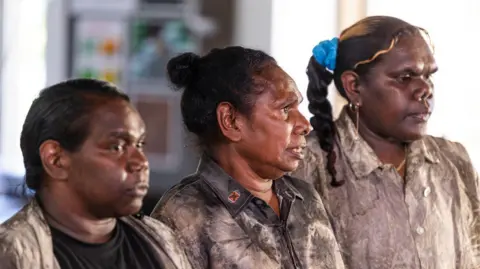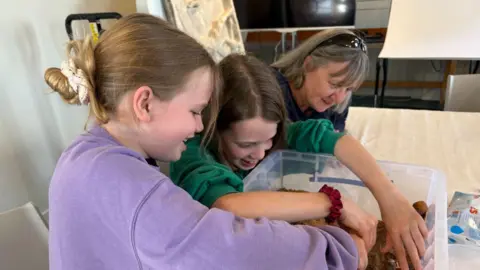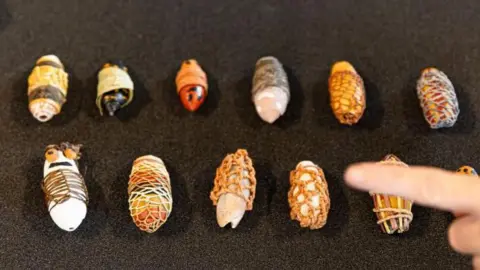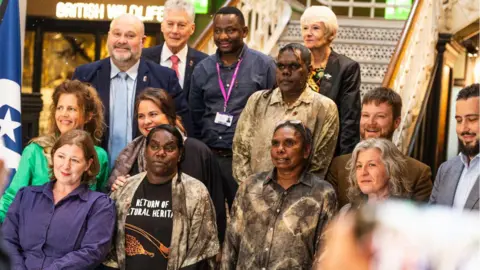Museum keeps doll promise to Aboriginal community
 ManchesterMuseum
ManchesterMuseumA museum has kept its promise to an Aboriginal community by letting children play with a set of painted shell dolls considered to be alive by the women who made them.
The items, known as Dadikwakwa-kwa, have been on display at Manchester Museum since they were donated by the Anindilyakwa people from an archipelago in Australia's Northern Territory.
But as a condition, curators had to promise that once a year the dolls, which represent family and ancestors to the Anindilyakwa, would be taken out from behind the glass for children to interact with.
Alexandra Alberda, a curator at Manchester Museum, said playing with the dolls raised "important" cultural questions about how artefacts are preserved.

The figurines were specially made and handed to the museum after more than 170 artefacts held in its natural history collections were given back to the Anindilyakwa people in 2023.
These included painted and barbed spears, armbands, baskets, as well as a set of the dolls made hundreds of years ago.
Each of the items was bought from community members or traded in the 1950s by Professor Peter Worsley when he was an anthropology PhD student researching Aboriginal lives.
He later held a position at the University of Manchester through which the Anindilyakwa collection came into Manchester Museum's possession.
 ManchesterMuseum
ManchesterMuseumThe dolls are unique to the Anindilyakwa people, a group of 14 Aboriginal clans who live on Groote Eylandt and other islands in the Gulf of Carpentaria.
Made by women, they can are used learning aides, to give advice and answer questions, and also to guide people through dreams.
"People used to make toys from what was around them, on Groote Eylandt that was shells", Ms Alberda said.
"As curators we thought how can we not just put them back into the museum as standard and what does it mean to take care of them?
"And the community said to us they have to be played with, they're dolls."
 ManchesterMuseum
ManchesterMuseumTo honour its promise, Manchester Museum has invited families to come and have fun with the dolls in a series of guided session through April.
Listen to the best of BBC Radio Manchester on Sounds and follow BBC Manchester on Facebook, X, and Instagram. You can also send story ideas via Whatsapp to 0808 100 2230.
